Touring the world can be like a breathe of fresh air for your nose
The head perfumer at Hermes reveals eight destinations guaranteed to stir the senses.
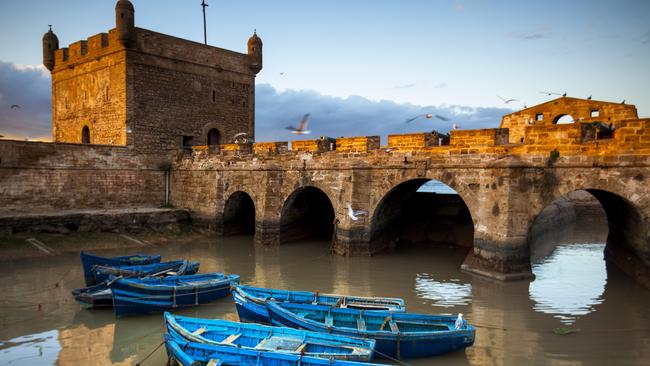
Nothing quite prepares you for the olfactory shock of arriving in India. Thirty years later, I still remember the first time I landed and the plane door opened. Back then, there were no airbridges directly into the terminal and I remember being hit by a whiff of damp. Smell, more so than our other senses, evokes powerful emotions and helps define our sense of a place.
Many places inspire me. There isn’t one country or destination that stands out, from the small house I have in Normandy that smells of grass, and which is an immense source of happiness, to the dream I have of visiting Africa to find the fruit tree (Synsepalum dulcificum) that bears so-called miracle berries, which have a mysterious smell. Legend has it they sweeten anything that is bitter or acidic, even one’s character.
As a perfumer, I find there are no good or bad smells; all scents are interesting. It is my nose that guides me on my travels or when I go for a walk. You can close your eyes but you can’t switch off your nose. People ask if I smell things differently because of my job. But you can learn to smell; it’s like learning to see colours better.
I’ve worked hard on my olfactory memory. When my nose becomes overwhelmed and I need to give it a rest, the way I calm it down is by smelling my own smell. I bury my nose into a shirt or sweater and that neutralises it.
I never thought of becoming a perfumer growing up in Geneva, partly because I didn’t realise the job existed. I started out as a chemist at a fragrance company and later worked as a chromatographer, a job that entails deciphering fragrances and their ingredients.
The scent of my childhood was growing up by Lake Geneva. A lake is not the same as the sea, as there’s a smoothness to its scent that distinguishes because there’s no salt. It’s also the smell of pine trees and hiking in the mountains, of mist and gruyere cream. Possibly a smell that stands out the most is Borotalco, the Italian equivalent of Johnson & Johnson baby powder (my mother was Italian). As soon as I smell it, it’s like being transported to cherished moments with my family, snapshots in time growing up.
1 Frida Kahlo Museum, Mexico City
I was in the garden of the artist’s famous Blue House when I first encountered magnificent lantana bushes with red and white flowers or, less often, yellow and white. When you crush the flowers between your fingers, they give off a scent that is like the passionfruit. It’s an acidic yet fruity and sulphuric aroma, like a blackcurrant that tastes of sunshine. You also find it along the edge of the Mediterranean and I’ve used it in the cologne Eau de Rhubarbe Ecarlate.
Go: Try to visit Mexico during the Day of the Dead, a festival celebrated in a very lively and colourful way. Intrepid Travel has a Day of the Dead tour module in Mexico City from October 30-November 2 next year, which coincides with the festivities and includes accommodation, touring and a visit to the Frida Kahlo Museum (Blue House).
More: intrepidtravel.com, museofridakahlo.org.mx
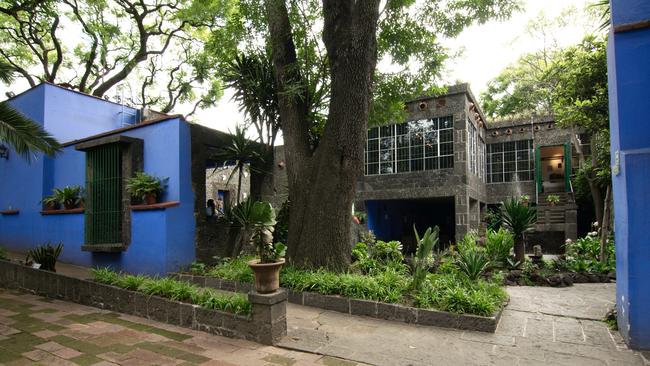
2 Panarea, Aeolian Islands, Italy
Off the north coast of Sicily, this smallest of the Aeolian Islands, at only 3.42sq km, is where during an evening passeggiata I came across the most incredible smell, both milky and earthy. I looked up and there above me was the most enormous fig tree, its large leaves covering the path only steps away from Myriam Beltrami’s Boutique Raya on the ground floor of Hotel Raya. Years later, I was chatting to another perfumer who had been struck by the same fig tree. Among all the little streets there, I also discovered De La Pina on Via San Pietro, a restaurant that serves a delicious and very original aubergine gnocchi.
Go: Cox & Kings offers an eight-day Aeolian Islands sailing trip on a ketch that includes a stop at Panarea.
More: coxandkings.com, hotelraya.it
3 Dubai, United Arab Emirates
This is a destination where a love of perfume is rooted in the culture and several Hermes perfumes have been born following my visits — Cardamusc, Agar Ebene and Eau de Citron Noir. My advice is to visit the markets and souqs and breathe in all the smells, take in the sights. Here you will find citron noir, or black lemon, which when you hold it feels light as air and gives off a scent that is unique — almost metallic. It has a concentrated taste that is both salty and smoky.
Go: UAE resident Melanie Jane offers masterclasses in aromatherapy and perfume-making.
More: masterclasseswithmelanie.com
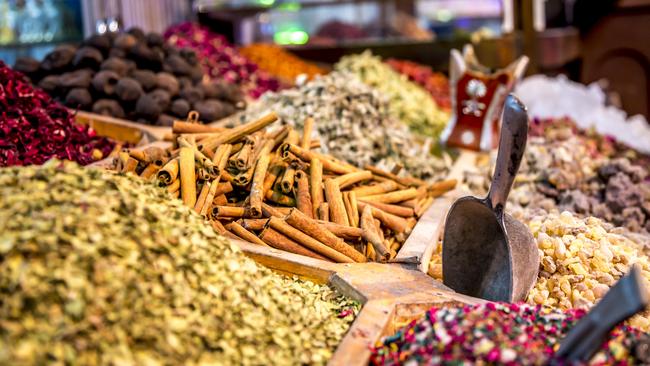
4 Dades Valley, Morocco
Don’t miss the festival of roses in May-June; the exact dates are revealed a month or so in advance, according to the harvest. It’s the best time to visit this so-called Valley of Roses and at each crossroads are heady garlands of Damascean roses. I recommend staying at La Kasbah de Mimi, a restored Moroccan cliffside getaway. It’s very sweet, with four guestrooms and piano concerts in the library.
Go: La Kasbah de Mimi has doubles from the equivalent of about $150, with dinner and breakfast for two; the closest airport is Ouarzazate.
More: kasbah-mimi.webliberte.net
Marrakech-based Morocco Gnawa Tours has a seasonal six-day return trip from Marrakech to the Sahara via the Valley of the Roses.
More: moroccognawatours.com/festival-roses-morocco/
5 Essaouira, Morocco
Previously named Mogador, Essaouira is a fortified village built by the Portuguese in 1506 that rather oddly resembles the architecture of Saint-Malo in Brittany. You must climb the ramparts at sunset as waves crash below on the rocks and the colour of the sky is sublime. Coming back to the city centre, you’re hit by the warm scent of the roots of the thuya tree, a smell that is woody and cedar-like, and which has inspired many of the greatest perfumers. If you want to stay somewhere special, I recommend Heure Bleue Palais in the heart of the medina; it recalls the luxury and charm of an old colonial hotel with its white central patio, luxuriant greenery, cosy salons and a large covered terrace with a swimming pool. The restaurant is excellent and you can even learn to make couscous with chef Ahmed.
Go: A four-day Essaouira small-group journey from Abercrombie & Kent is available as an extension to a 12-day Splendours of Morocco itinerary. Stays at Heure Bleue Palais are included.
More: abercrombiekent.com.au.
6 Sichuan, China
Sichuan is a mountainous province at the foot of the Himalayas. At 2800m high, after a long trek, I harvested Sichuan pepper with local women dressed in multi-coloured clothes. Despite its name, this berry is not peppery but comes from the citrus family. It’s one of the oldest Chinese spices, used to fragrance the dishes of the gods and, more recently, in cooking. This region is very remote, with not a hotel or restaurant for miles around. However, about 300km away, in the village of Chengdu, I came across a delicious local speciality called mapo tofu. It’s a mix of tomatoes, tofu, beef and is seasoned with Sichuan pepper.
Go: Wendy Wu Tours has a 15-day Sichuan Explorer tour from $4580 a person twin-share, including flights, accommodation, visa fees and ground arrangements.
More: wendywutours.com.au.
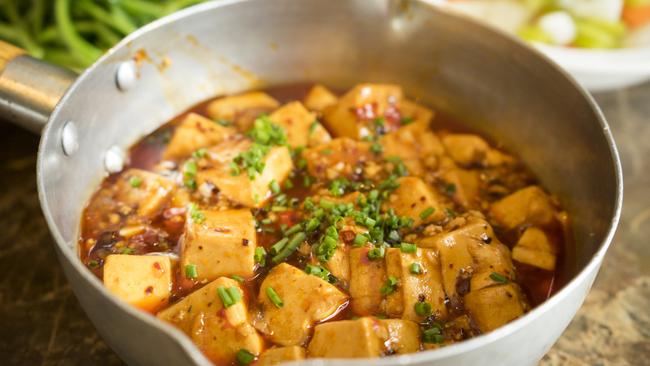
7 Bluebell woods, Arlington, Sussex, England
A walk in the forest near Arlington, Sussex, reveals woodlands of bluebells, a total assault to the senses. When I was last there, I spent the entire day on my knees in this sea of bluebells, smelling them, revelling in them and trying to remember their scent. It’s a smell that inspired a perfume. In Arlington village, there is a cafe called Playcats that is seemingly quite ordinary but dishes up wonderful lemon blueberry cheesecake and rhubarb crumble.
Go: Arlington Bluebell Walk and Farm Trail was established in 1972 and has developed into seven walks over three working farms; re-opens for spring in April.
More: bluebellwalk.co.uk.
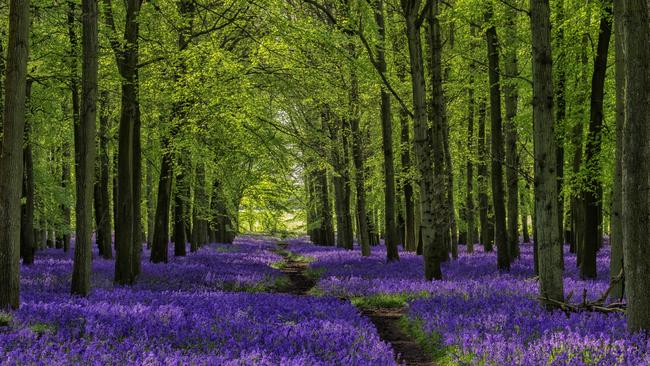
8 Cadaques, Spain
Immortelle (Helichrysum italicum) and bougainvillea grow all over the place at Cadaques in Catalonia. Well worth a visit is the Salvador Dali Museum-House, close by in Portlligat. Hundreds of dried bunches hang there because his wife, Gala, adored their scent. There’s an amusing story of an art expert who apparently authenticates Dali’s work by smelling the canvas because, 50 years later, any art created at Cadaques still smells of immortelles. In Cadaques, I discovered in the backstreets a very simple restaurant called Embolic, at Carrer Miquel Rosset 5, that serves delicious food. Try the cod doughnuts with cucumber sauce and the hummus.
Go: Advance bookings are essential to visit the Salvador Dali Museum-House; closed on public holidays, January 17-February 10, and on most Mondays.
More: salvador-dali.org.
Telegraph Media Group
-
Create your fragrance
Andalucia in a bottle? I give you Eau de Seville, with 20 parts white oud, three parts each of amber and neroli, two parts bergamot blend and one part spicy ginger. Neroli is, of course, orange blossom.
It’s the defining smell of my European childhood, my mother’s favourite flower. With the expert tuition of master perfumer Nicola Pozzani, I created Eau de Seville this year according to this combination at the Floris boutique on Jermyn Street in St James, London. The Floris bespoke experience costs £450 ($810) and features a two-hour private collaboration with a master perfumer to create a labelled and gold-boxed 100ml eau de parfum to take home. Your blend will be kept on file for re-orders and the name you choose won’t be replicated for any another client.
florislondon.com.au, agencedeparfum.com.au
Susan Kurosawa, Travel Editor

To join the conversation, please log in. Don't have an account? Register
Join the conversation, you are commenting as Logout